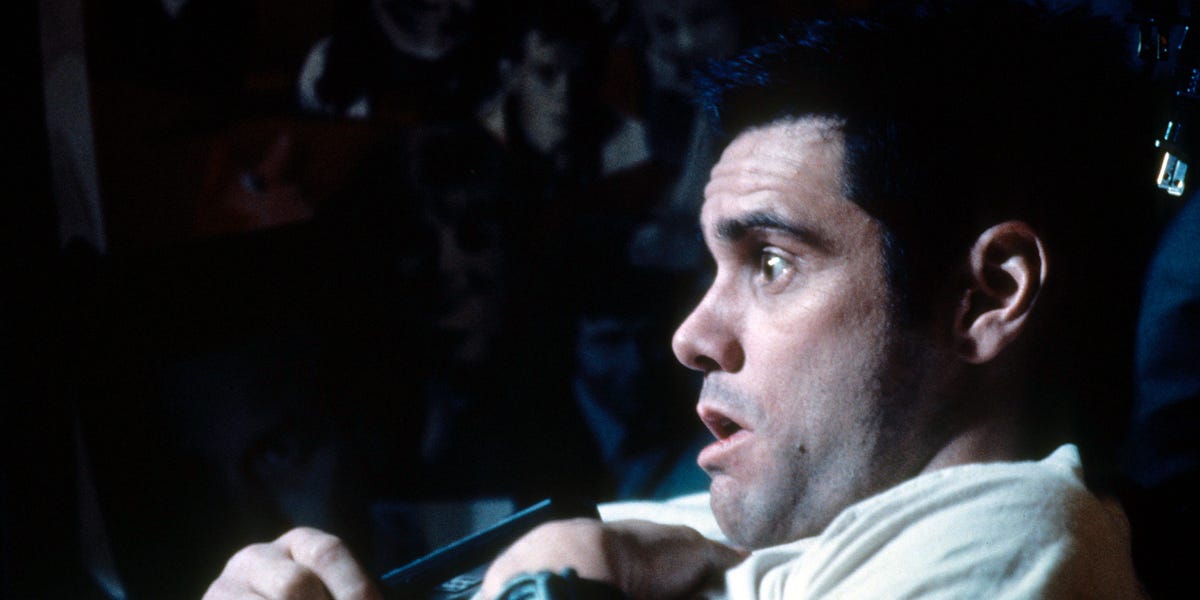Sooner or later, everything old is new again.
We may be at this point in tech, where supposedly revolutionary products are becoming eerily similar to the previous offerings they were supposed to beat.
Take video streaming. In search of better profitability, Netflix, Disney, and other providers have been raising prices. The various bundles are now as annoyingly confusing as cable, and cost basically the same. Somehow, we’re also paying to watch ads. How did that happen?
Amazon Prime Video costs $9 a month and there are no ads. Oh, except when Thursday Night Football is on. Then there are loads of ads. And Amazon is discussing an ad-supported version of the Prime Video service, according to The Wall Street Journal. That won’t be free, I can assure you.
Paramount+ with Showtime costs $12 a month and the live TV part has commercials and a few other shows include “brief promotional interruptions,” according to the company. Translation: ads.
Streaming was supposed to be better and cheaper. I’m not sure that’s the case anymore. This NFL season, like previous years, I will record games on OTA linear TV using a TiVo box from about 2014. I’ll watch hours of action every weekend for free and I’ll watch no ads. Streaming can’t match that.
You can still stream without ads, but the cost of this is getting so high, and the bundling is so complex, that it’s getting as bad as cable — the technology that streaming was supposed to radically improve upon.
The Financial Times recently reported that a basket of the top US streaming services will cost $87 this fall, compared with $73 a year ago. The average cable TV package costs $83 a month, it noted. A 3-mile Uber ride that cost $51.69
A similar shift is happening in ride-hailing. Uber has been on a quest to become profitable, and it achieved that, based on one measure, in the most-recent quarter. Lyft is desperately trying to keep up. How are they doing this? Raising prices is one way.
Wired’s editor at large, Steven Levy, recently took a 2.95-mile Uber ride from downtown New York City to the West Side to meet Uber CEO Dara Khosrowshahi. When asked to estimate the cost of the ride, Khosrowshahi put it at $20. That turned out to be less than half the actual price of $51.69, including a tip for the driver.
“Oh my God. Wow,” the CEO said upon learning the cost.
I recently took a Lyft from Seattle-Tacoma International airport to a home in the city. It cost $66.69 with driver tip. As a test, I ordered a taxi for the return journey. Exact same distance, and the cab was stuck in traffic longer. The cost was $70 with a tip. So basically the same.
And the cab can be ordered with an app now that shows its location, just like Uber and Lyft. So what’s the revolutionary benefit here? The original vision was car sharing where anyone could pick anyone else up. Those disruptive benefits have steadily ebbed away through regulation, disputes with drivers over pay, and the recent push for profitability. Cloud promises are being broken
Finally, there’s the cloud, which promised cheaper and more secure computing for companies. There are massive benefits from flexibility here: You can switch your rented computing power on and off quickly depending on your needs. That’s a real advance.
The other main benefits — price and security — are looking shakier lately.
Salesforce, the leading provider of cloud marketing software, is increasing prices this month. The cost of the Microsoft 365 cloud productivity suite is rising, too, along with some Slack and Adobe cloud offerings, according to CIO magazine.
AWS is going to start charging customers for an IPv4 address, a crucial internet protocol. Even before this decision, AWS costs had become a major issue in corporate board rooms.
As a fast-growing startup, Snap bought into the cloud and decided not to build it’s own infrastructure. In the roughly five years since going public, the company has spent about $3 billion on cloud services from Google and AWS. These costs have been the second-biggest expense at Snap, behind employees.
“While cloud clearly delivers on its promise early on in a company’s journey, the pressure it puts on margins can start to outweigh the benefits, as a company scales and growth slows,” VC firm Andreessen Horowitz wrote in a blog. “There is a growing awareness of the long-term cost implications of cloud.”
Some companies, such as Dropbox, have even repatriated most of their IT workloads from the public cloud, saving millions of dollars, the VC firm noted.
What about security? Last month, Google, the third-largest cloud provider, started a pilot program where thousands of its employees are limited to using work computers that are not connected to the internet, according to CNBC.
The reason: Google is trying to reduce the risk of cyberattacks. If staff have computers disconnected from the internet, hackers can’t compromise these devices and gain access to sensitive user data and software code, CNBC reported.
So, cloud services connected to the internet are great for everyone, except Google? Not a great cloud sales pitch.
Did anyone actually expect anything else?
Capitalism will never cost less in the long term.
Left to its own ends it seems it will cost the same but have better margins concentrated into greater wealth for fewer people.
We need UBI, like, 5 centuries ago.
I mean, I like the idea but you don’t think greedflation will just jack up the price of things more once “we all have more money to spend”?
Exactly. Until we put either the heaviest lid on capitalism (never going to happen) or upend the system entirely, UBI will “drive inflation,” meaning we’ll still make the same (or probably somehow less) at our jobs while the UBI money literally just keeps everything at the same affordability. There is no world in which business doesn’t just go after that money. We saw very recently, with the flimsiest of excuses, capitalists will claim “inflation” while pocketing record profits. They’ll do the exact same if UBI is implemented without some massive changes to capitalism.
Burn it all down. Anyone that still has hopes for fixes that maintain the capitalist system are fooling themselves. We have no other options at this point. It’s either we do it now, or wait until capitalism and the devastating effects of climate change force our hand. At least if we do it now, at our own discretion, we might be able to throw the emergency-emergency brakes on climate change. Otherwise, companies and the capitalists that run them will absolutely watch us all fry from their self-sustaining pod homes that are built in the upper atmosphere to keep the temperature bearable and to stay above the devastating weather events. And they’ll do it without thinking twice.
Nope. People will focus on life hacking their way through surviving of fractions of UBI.
UBI is a freedom.
To dismiss it as something that will be immediately taken is how one finds themselves clinging to their shackles from comfort; pearl clutching them over the uncertainty of freedom.
Instead it looks like we’ll be losing universal everything in exchange for serfdom.
One question, where was UBI 5 centuries ago?
Honestly i thought the concept of Uber would work. I’m commuting and you are too so you give me a few bucks to go my way. It was supposed to be “Cash, grass, or ass” minus the grass and ass.
But then people started driving purely to get people to oay them and suddenly its a taxi service.
Candles were once a significant cost. But lightbulbs are incredibly cheap.
Food used to take a whole day to acquire.
We have things that even royalty didn’t have before, like air conditioning, out-of-season food, international travel, etc.
Capitalism sucks for sure. But it has given society a few benefits, and sometimes things do get significantly cheaper long term (but I’m generally skeptical about which items will go that way)
What does this have to do with capitalism? Are you implying that communism would not have that problem or that it would be expensive to begin with?
And that’s exactly how they intended it. They’ve been planning a corporate takeover of the internet since 2010, and it has largely succeeded.
The fediverse might be all that’s left of the original spirit of the internet.
Uber was unsustainably underpriced in order to gain market share. Pricing is temporary; the core benefit as a consumer was always the ability to request one from anywhere using an app (where you also paid) and have them come directly to you instead of needing to hail one. Taxi companies added that ability and now everything is better. There’s no reason why the approximate cost should vary much, outside of limited promotions. An Uber, a Lyft, and a taxi should cost roughly the same. Why wouldn’t they? Perpetual VC-funded pricing wasn’t what we were promised; the promise was convenient ordering and stress-free payments.
I find these kinds of posts to be so entitled and pessimistic. Yeah, prices have definitely gone up, but the tech solutions are almost unilaterally better than their replacements.
- Streaming: you don’t actually have to subscribe to every single streaming service, and most are dead simple to cancel (good luck canceling your cable service). Most are very lax about sharing passwords, or have cheaper ad-based tiers if you want to save a bit.
- Uber: you can summon a comfortable car that seats up to 6 and can set your destination as well as multiple stops, and have it pull right up to where you are, often in 5 minutes or less, without needing to talk to or hail someone. In the US prices have crept up but in other countries it’s still a bargain compared to taxis, which are sometimes run like a racket.
- Cloud: I don’t even know what this is doing here since we are talking consumer tech and this is more about B2B services. For the consumer the cloud is still dirt cheap and transformative, and doesn’t even have a “back in my day” equivalent.
Everything is amazing and no one is happy.
Best thing about Uber is it relieves the unknown of being just on the meter. I hated having to get a cab and watching that meter tick up and wonder if was going to be 5 or 25 before I got.there. then get feeling was it worth it. Yes you could ask the cabbie for estimate but was not accurate and most of the time you felt locked in at that point anyway
Because it’s getting worse. The trend (capitalism) is about squeezing more and more money from consumers and leaving less and less value. In a year the price of streaming could be another 20% up, and they could have added more ads. Because that’s what they do, always. It’s always getting worse after the initial honeymoon period, and it keeps getting worse.
It’s very different from open source for example, where things constantly get better every year.
So for half these things, early on the costs of doing business were carried by other people. Streaming services relied on studios to produce content, and Uber relied on drivers to carry maintenance costs and downtime cost.
Now Netflix is a full studio and all the other services that are competitive have original content. Uber drivers are unionized.
Cloud services are fine for set low computation things, but once you scale past a certain point keeping your own IT staff busy is easy, and they provide a tailor made infrastructure.
Same rodeo, new clowns.
It’s almost like the underlying premise doesn’t change with tech.
The things that can/should be broken is the stupid medallion system.
These are three topics that people love to focus on price against traditional services without looking any deeper.
Streaming is only just as expensive as cable if you subscribe to a bunch of them, but if you pick and choose, start and stop, it is cheaper. Further, it is a better experience. You can watch what you want, when you want. You don’t need an annoying DVR setup, etc. The experience is better, even if you do choose to pay the same.
For Uber and Lyft, I don’t use them because they are cheaper; I use them because they are better than traditional taxis. Seriously, how many people who say they aren’t better than taxis have even used taxis heavily while traveling? Using taxis sucks, except possibly around airports or in the rare city you can walk outside and hail a cab. Outside of that you often have to call in, wait for an extended time with no ETA, etc. Lyft and Uber are a better experience, especially when you are outside major tourist or travel hubs.
Finally, cloud is more expensive, but gets you all sorts of benefits. Those benefits may or may not be worth the cost depending on you or your org, but it is not 1-1 to running on prem. On AWS you can trivially automate events across the entire ecosystem of services, run serverless infrastructure, etc. There are many great use cases for spending the money on the cloud, and most organizations should have a hybrid approach.
Sorry, end rant, but I always get tired of the false equivalence of these three things and the tunnel vision on price.
But what if I like servers? I mean, I don’t today, because Dell not making legacy updates easy on me…but you know, in general!
You do you, you beautiful server hugging butterfly!
I got to point out that ipv4 addresses are a serious supply/demand issue. I’m so fucking glad that they cost real $$$ just because I hate dealing with NAT and ipv6 will fix a lot of that, immediately.
Honestly, given the current fragmentation of Streaming Service, it has become completely anti-consumer.
People don’t like to spend so much money just to watch one or two shows from one platform. They like the concept of AIO platforms and being on-demand & ad-free. All three of them have been broken.
My mother was a journalist, her heyday was in the 80s-early 00s, she covered the Israeli-Palestinian conflict as well as the wars in the former Yugoslavia. We had a long phone call last weekend where we ended up talking about Twitter, the online service that changed journalism. I explained to her that the current owner put a foot in his mouth and was forced to buy it at a higher price than the initial valuation while grumbling that it was not turning profit, she guffawed at this. She said, “When has the media ever made profit??”
The only difference between old media and new online media is that online media also sell user data to make more revenue (along with old time subscription models and selling ad spaces), and even with this they’re still not making profit.
The cloud was never cheap.
What a strange idea.
Well for scaling. If you wanted on prem you bought cheap. And when you needed more power you were screwed. So if you were worried about that you bought too much system in the hopes you don’t overload.
Well… while i don’t disagree with the thesis, nobody is forcing peasants to buy this shit. This is not food, this is not shelter, education or healthcare… vote with your fuckin’ money.
entertainment is mental health and mental health is just as important as physical health… don’t be so damn condescending!
Transportation is up there, and I guess the cloud computing stuff is at the whims of employers and corporate overlords. But it is possible to get by without streaming services.
Correct! Prolly next after food and shelter…
I doubt peasants are buying much cloud service.












